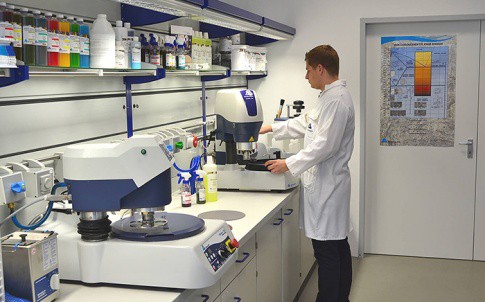
Buehler, an ITW Company and a global industrial manufacturer of value-added consumables and specialty material testing equipment is offering SumMet Metallography classes throughout 2018 in the United States and Europe.
SumMetTM Fundamentals of Metallographic Techniques is a three-day course designed for both metallographers without formal training and experienced metallographers who want to learn the latest preparation techniques. According to Dr. Mike Keeble, United States Laboratory and Technology Manager, “Buehler recognizes the need to educate lab technicians with the most current equipment and methods. The fundamentals of sectioning, mounting, grinding and polishing are covered both in theory and practice in this course. They are based on the SumMet methods developed at Buehler since 1936. Students will also be exposed to optical microscopy, etching, hardness testing, and microstructural interpretation.”
Classes will be held at the Buehler headquarters in Lake Bluff, Illinois and in the company’s laboratories in Düsseldorf and Esslingen in Germany, and Coventry in the United Kingdom.
In the United States, the class is taught by Dr. Mike Keeble who has 12 years of experience with Buehler specializing in applications support, as well as more than 10 years of experience in metallurgy Research and Development for key industries like aerospace, automotive, electronics, energy, metals and medical devices.
In Düsseldorf, Germany the class is taught by Matthias Pascher, Buehler Product manager for hardness testing and imaging analysis. Mr Pascher has extensive applications support in metallography, hardness testing and imaging analysis combined with a solid background in material science.
In Coventry, United Kingdom the class is taught by Dr. Evans Mogire, EMEA Laboratory and Technical Manager. Dr. Mogire has extensive experience in metallography of metallic, polymeric and ceramic materials, as well as more than nine years of experience in metallurgy R&D.










Guest blog: exploring opportunities for hydrogen combustion engines
"We wouldn't need to pillage the environment for the rare metals for batteries, magnets, or catalisers". Batteries don't use rare...